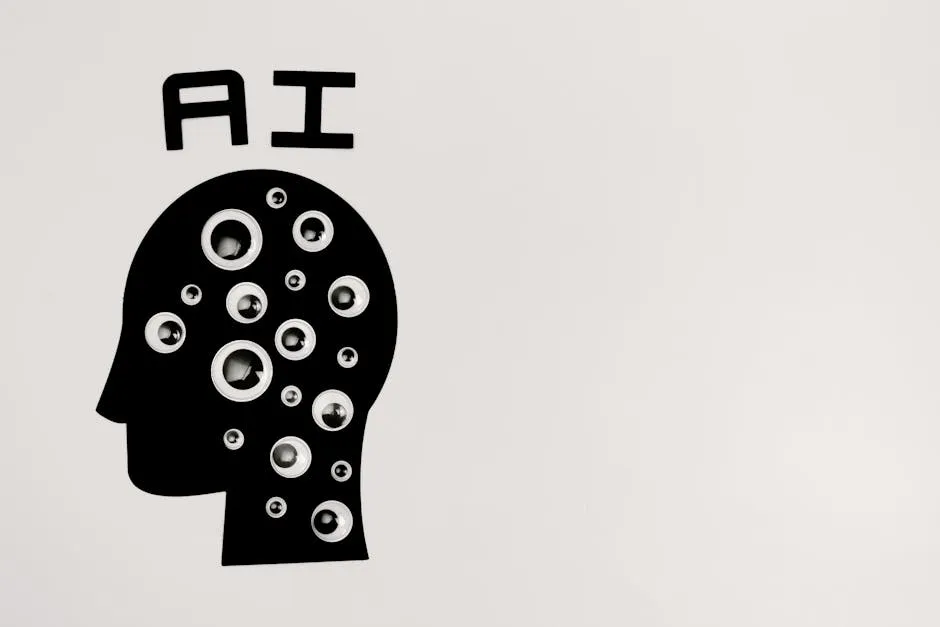Overview of Analytical Thinking
Analytical thinking involves breaking down complex problems. It’s like being a detective, piecing together clues to uncover solutions. This skill is crucial for effective decision-making in various fields.
In business, analytical thinking supports strategic planning. Imagine a marketer analyzing customer data to tailor campaigns. Similarly, scientists rely on analytical skills to interpret experimental results. In education, teachers use these skills to develop curriculum that fosters critical thinking. If you want to dive deeper into this topic, check out The Art of Thinking Clearly by Rolf Dobelli.
Historically, analytical thought evolved from early philosophers like Aristotle. Today, it remains essential. A study found that 80% of employers prioritize analytical skills in candidates. This statistic highlights its significance in the job market. Whether in science, business, or education, analytical thinking is invaluable.

Reflect on your own analytical skills. Are there areas where you can improve? Consider enhancing your capabilities to thrive in a data-driven world. A great way to start is by reading Mindset: The New Psychology of Success by Carol S. Dweck.
Understanding Analytical Skills
Analytical skills are like a Swiss Army knife for the mind. They help you slice through complexity with ease. Let’s break these skills down into four components: observation, interpretation, reasoning, and evaluation.
Observation is the first step. It’s about noticing details others might miss. Think of a detective spotting a clue at a crime scene. Next comes interpretation. This is where you make sense of what you’ve observed. It’s like translating a foreign language into something you understand. For more on this topic, check out our article on what is an observation in statistics.
Understanding the role of observation is crucial in analytical skills. what is an observation in statistics can provide deeper insights into this fundamental component.
Then, we have reasoning. This involves drawing conclusions based on your observations and interpretations. It’s where the magic happens! Lastly, evaluation allows you to assess the validity of your conclusions. Are they solid or shaky? This skill set is distinct from other cognitive skills, like creativity. While creativity dreams up new ideas, analytical skills focus on dissecting existing ones.
Let’s look at a real-life scenario. Imagine a project manager facing a tight deadline. By closely observing team dynamics and interpreting each member’s strengths, the manager can reason the best way to allocate tasks. This analytical approach can turn a chaotic project into a well-oiled machine. If you’re interested in improving your analytical skills, consider reading How to Read a Book: The Classic Guide to Intelligent Reading by Mortimer J. Adler.
To develop these skills, practice is key. Techniques like solving puzzles, engaging in critical thinking exercises, and even playing strategy games can sharpen your analytical mind. A study revealed that 90% of employers seek strong analytical skills in candidates. Companies that foster analytical thinking see improved outcomes; for instance, a case study showed that a retail chain increased sales by 20% after implementing data-driven strategies.

So, how do you stack up on analytical skills? Why not take a self-assessment quiz? It’s a fun way to gauge your strengths and discover areas for improvement. And while you’re at it, check out The 7 Habits of Highly Effective People by Stephen R. Covey.
Educational Approaches to Enhance Analytical Thinking
Cultivating analytical skills is vital for students and professionals. Effective educational strategies can significantly impact this development. Let’s explore key methods to enhance analytical thinking.
First, consider curriculum designs that prioritize analytical skills. A well-structured curriculum interspersed with analytical tasks sharpens students’ problem-solving abilities. Courses should integrate subjects like mathematics, science, and critical thinking, allowing students to practice skills in various contexts. If you want to understand more about the data aspect, The Data Science Handbook: A Comprehensive Guide to Data Science and Machine Learning by Field Cady is a fantastic resource.

Project-based learning is another fantastic approach. It encourages students to tackle real-world problems, fostering deep analytical engagement. For example, students might work in teams to design a sustainable solution for their community. This hands-on experience boosts not only analytical skills but also collaboration and communication.
Critical thinking exercises play a crucial role too. Simple activities like debates and case studies challenge students to articulate their thoughts and consider multiple perspectives. These exercises train the mind to analyze arguments and assess evidence, essential components of analytical thinking. You might also want to check out The Power of Habit: Why We Do What We Do in Life and Business by Charles Duhigg for insights on behavioral change.
Mentorship is equally important. A good mentor can guide learners through complex concepts. They provide feedback and share experiences that shape analytical skills. Whether in academic settings or professional environments, mentorship nurtures growth and confidence in analytical abilities.
Numerous online resources and courses are available for those eager to enhance their analytical skills. Platforms like Coursera, edX, and LinkedIn Learning offer courses tailored to various levels and topics. These resources make it easy to learn at your own pace while gaining valuable insights from experts. And while you’re learning online, consider enhancing your knowledge with Thinking, Fast and Slow by Daniel Kahneman, which explores the dual systems of thought.
Research supports the effectiveness of these strategies. Studies indicate that project-based learning and critical thinking exercises can lead to a 30% improvement in students’ analytical skills. Furthermore, mentorship programs have shown to increase engagement and success rates among participants.

In conclusion, the journey to sharpen analytical thinking involves various educational approaches. From innovative curriculum designs to mentorship, each strategy contributes to developing robust analytical skills. Interested in boosting your analytical prowess? Explore online courses or workshops today to start your skill enhancement journey!
The Future of Analytical Thinking
As we look ahead, analytical thinking is poised for transformation. The rise of artificial intelligence (AI) and machine learning (ML) is reshaping analytical processes across industries. These technologies automate data analysis, making it faster and more accurate. They help us sift through vast amounts of data, uncovering insights that human analysts might miss. In fact, a recent report suggests that AI-driven analytics could grow the data analytics market by over 25% in the next decade.
What does this mean for the job market? Predictions indicate a surge in demand for data analytics roles. By 2030, nearly 2.7 million new jobs in this field are expected to emerge. Professionals will need to adapt, acquiring future skills that blend traditional analytical thinking with technological proficiency. Employers will seek candidates who can interpret data generated by AI and apply insights to real-world scenarios. For more on this, you can read about inferential statistics vs descriptive statistics in data interpretation.

Understanding data interpretation is vital as we move towards AI-driven analytics. Check out this article on inferential statistics vs descriptive statistics in data interpretation for more insights.
In this rapidly evolving landscape, adaptability and continuous learning are essential. Individuals in analytical roles must stay updated on technological advancements and methodologies. Online courses and workshops can provide the necessary training to keep skills sharp and relevant. Embracing a mindset of lifelong learning will be key to thriving in the future of analytical thinking. You might find Introduction to Machine Learning with Python: A Guide for Data Scientists by Andreas C. Müller to be a valuable read.
Stay informed about trends in analytics. Consider ongoing education to enhance your skills and remain competitive in the job market. The future is bright for those who can think analytically!
FAQs
What is analytical thinking?
Analytical thinking refers to the ability to break down complex problems. It involves examining details to discover underlying patterns. Think of it as solving a puzzle—each piece matters! This skill is essential for effective decision-making in various fields. For instance, scientists rely on analytical thinking to interpret data, while marketers analyze customer behavior to tailor strategies. It’s about being curious and questioning everything—like a detective or a curious cat.
How can I improve my analytical skills?
Improving analytical skills is a fun challenge. Start by practicing problem-solving exercises. Engage in puzzles or strategy games to sharpen your mind. Another great tip is to reflect on your decisions regularly. Ask yourself what worked, what didn’t, and why. Additionally, try to break down complex information into simpler parts. Remember, practice makes perfect. So, embrace challenges and keep learning!
Why are analytical skills important in business?
Analytical skills are crucial in business for making informed decisions. They help professionals assess data and identify trends. For example, a company can analyze sales data to adjust marketing strategies effectively. This skill fosters innovation and enhances competitive advantage. In a world driven by data, the importance of analytical thinking cannot be overstated. It’s the secret sauce for success in strategic planning!
What tools can help with analytical thinking?
Several tools can enhance analytical thinking. Software like Tableau or Microsoft Power BI allows users to visualize data effectively. Excel is another classic tool for data analysis. Additionally, online platforms offer courses in data analytics. These resources equip you with techniques to analyze information efficiently. Remember, the right tools can make your analytical journey easier and more enjoyable!
Are analytical skills the same as critical thinking?
While analytical and critical thinking share similarities, they’re not the same. Analytical thinking focuses on breaking down information into components. It’s about understanding how things work. On the other hand, critical thinking involves evaluating information and questioning assumptions. Both skills are essential, but they serve different purposes. Think of analytical thinking as the detective work, while critical thinking is the courtroom debate!
Please let us know what you think about our content by leaving a comment down below!
Thank you for reading till here 🙂
All images from Pexels




